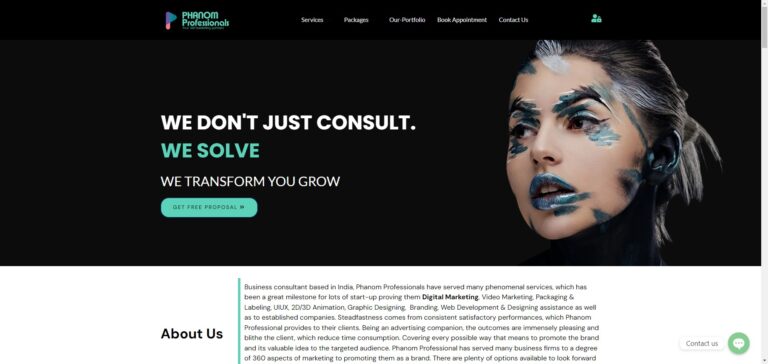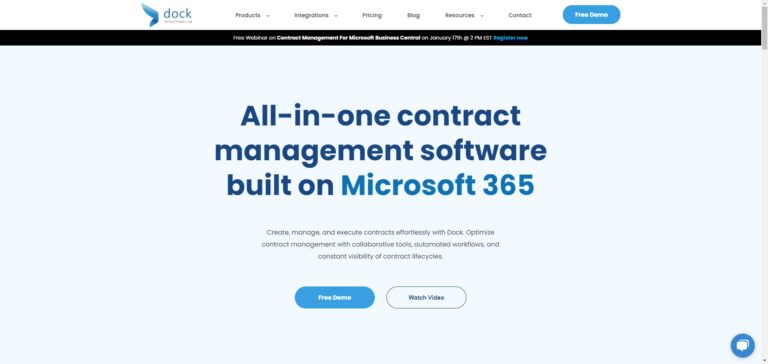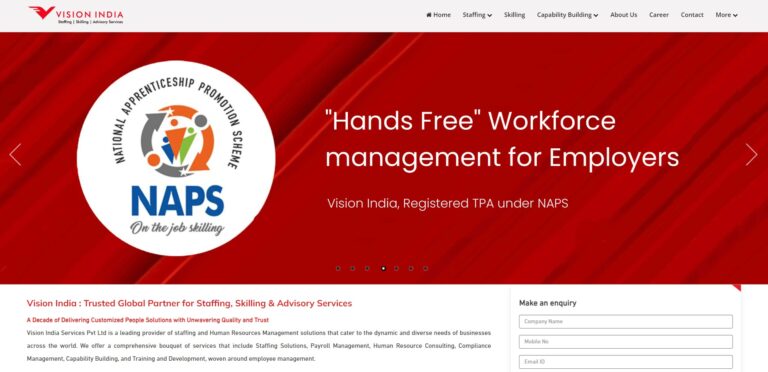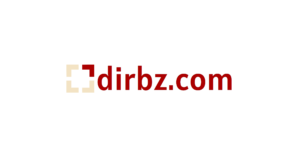Embracing the Future of Web Development: Understanding Headless Development with WordPress

In recent years, the digital landscape has witnessed a revolution in web development. One of the significant advancements that have gained popularity is “headless development.” This innovative approach to building websites using WordPress has opened up new possibilities for developers, designers, and content creators. In this article, we will delve into the world of headless development with WordPress, exploring its principles, benefits, and potential challenges.
What is Headless Development?
Headless development, also known as headless CMS (Content Management System), is a modern architectural approach that decouples the backend (content management) from the frontend (user interface). Traditionally, WordPress has been known for its monolithic structure, where both the backend and frontend were tightly integrated into a single platform. However, with headless development, this coupling is eliminated, providing developers with greater flexibility and versatility in delivering content across various digital platforms.
The Headless CMS Concept
In the headless CMS model, the backend, which includes content creation, storage, and management, operates independently. WordPress, with its rich ecosystem of plugins and themes, excels at these backend functionalities. The frontend, responsible for displaying the content to users, is detached and can be implemented using any technology stack such as React, Angular, Vue.js, or even native mobile applications.
How Does Headless WordPress Work?
In a headless WordPress setup, the content is stored in the WordPress database through its familiar admin interface. Instead of generating traditional HTML pages, WordPress exposes its content via RESTful APIs (Application Programming Interfaces). These APIs allow developers to fetch content in a structured format, such as JSON or XML, which can be consumed by the frontend.
For instance, if you have a React frontend, you can use JavaScript to interact with the WordPress API and retrieve specific posts, pages, or custom content types. The frontend then takes over the responsibility of rendering the retrieved data into a user-friendly interface.
Benefits of Headless Development with WordPress
- Flexibility and Customization: Headless development enables developers to build unique and tailored user experiences across different platforms without being limited by WordPress themes or templates.
- Performance: Since the frontend is decoupled, the website’s performance can be significantly improved. By optimizing the frontend code and leveraging modern frameworks, load times can be reduced, leading to better user experiences.
- Future-Proofing: Headless development allows websites to adapt easily to new technologies and trends without having to change the entire content management system.
- Omni-Channel Content Delivery: With headless WordPress, content can be efficiently distributed to various platforms such as websites, mobile apps, smartwatches, or IoT devices, ensuring a seamless experience across all devices.
- Collaboration and Workflow: Headless development fosters collaboration between developers and content creators. Content creators can use the familiar WordPress interface, while developers have the freedom to implement cutting-edge frontend technologies.
Challenges of Headless WordPress
While headless development brings many advantages, it also presents some challenges:
- Development Complexity: Headless development requires more technical expertise, as developers must create and maintain a separate frontend in addition to the WordPress backend.
- Plugin Compatibility: Some WordPress plugins may not be designed to work with headless setups, limiting the functionality available on the frontend.
- Learning Curve: Content creators and editors might need to adapt to new workflows when interacting with the decoupled frontend.
Conclusion
Headless development with WordPress represents an exciting shift in web development paradigms, offering unparalleled flexibility, performance, and future-readiness. By decoupling the frontend from the backend, developers can craft engaging user experiences on various platforms while still leveraging the power of WordPress as a robust content management system. As the digital landscape continues to evolve, headless WordPress stands at the forefront of innovation, enabling businesses and creators to embrace the future of web development.
Business Listings Related to the Article: Embracing the Future of Web Development: Understanding Headless Development with WordPress
Phanom Professionals
Phanom Professionals stands as a reputable business consulting firm based in India, specializing in top-tier services such as optimal branding, digital marketing, and expert assistance in web development and design.
- Category
- Consulting Services
Dock 365 CLM System
Dock 365 CLM System stands as a sophisticated all-in-one contract management software, expertly crafted for seamless integration with Microsoft 365.
- Category
- Business Services
Vision India Services
Vision India Services Pvt Ltd remains a forefront trailblazer in furnishing staffing and Human Resources Management solutions that aptly address the ever-shifting and distinct requisites of businesses spanning the globe.
- Category
- Business Services
More Articles Like: Embracing the Future of Web Development: Understanding Headless Development with WordPress
DirBz.com: Boost Your Business Visibility with an Affordable Web Directory Listing
In the vast landscape of the internet, businesses strive to stand out and make their mark. One effective way to enhance visibility is through web directories, and DirBz.com emerges as a cost-effective solution tailored for businesses of all sizes. This business-oriented web directory offers a platform for enterprises to showcase their websites, reaching a wider […]
Exploring Sylius: An Overview of the Open Source eCommerce Framework
In the dynamic landscape of eCommerce, businesses constantly seek robust and flexible solutions to manage their online stores effectively. One such solution gaining prominence is Sylius—an open-source eCommerce framework. Sylius offers a modern and customizable platform for building online shops, providing developers and businesses with the tools they need to create tailored eCommerce experiences. Understanding […]
Debunking the Notion: Why WordPress Cannot Be Considered a Framework
WordPress, undoubtedly one of the most popular content management systems (CMS) globally, has played a significant role in shaping the digital landscape. With its user-friendly interface and an extensive library of plugins and themes, it has enabled countless individuals and businesses to establish an online presence. However, there’s an ongoing debate about whether WordPress can […]







